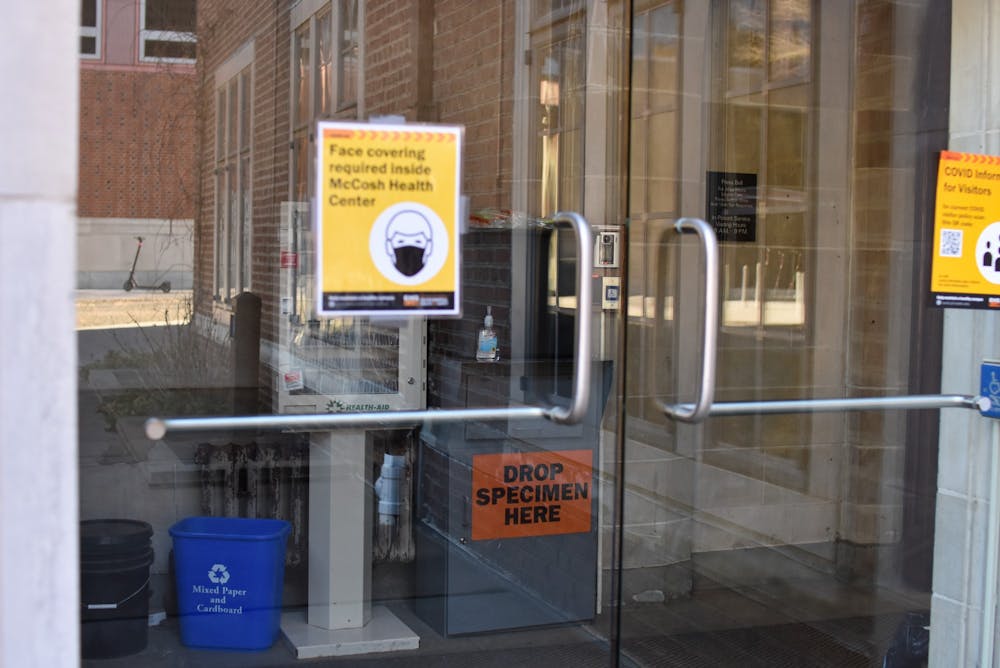The following is a guest contribution and reflects the author’s views alone. For information on how to submit an article to the Opinion Section, click here.
In the winter of 2021, as Omicron, the latest COVID-19 variant was rising, the Princeton community attempted to bridge the formidable gap between practicing safety and moving beyond the pandemic. During this time, a classmate of mine made a statement that reflected the implications of the pandemic. This student, someone I’d consider a friend and is also rather well-informed on policy, told me: “We have to find a death rate that we are comfortable with.” Their words, of course, meant that the United States and the world as a whole would have to decide the point at which COVID-19 deaths were acceptable to allow economic and social growth.
Six months prior to this conversation and about a year into the pandemic, I was diagnosed with Rheumatoid Arthritis (RA). RA is an autoimmune disease where one’s immune system attacks the joints from the inside out. Before my diagnosis, I had characteristic pain and mobility issues — I was an incredibly sick child, but had difficulty getting doctors to believe that my symptoms existed for the entirety of my life. For the entirety of the pandemic, my mother, who has had ovarian, brain and lung cancers, and I have been placed in mortal danger by a disease that kills people with our exact same illnesses every day.
As an immunocompromised person, the statement of my classmate is horrifying, because I know that people like me are 42 percent more likely to die of COVID-19 if vaccinated, and 87 percent if unvaccinated. This reminder isn’t only present in the most extreme case of death or advertised in global data. Rather, I am reminded everyday as I sit in my classes. Oftentimes, I am one of very few wearing a mask, while my classmates around me frequently come to class while ill. Their coughing and sneezing, while even if not from COVID-19, could be an illness that could hospitalize me. My personal safety feels constantly at risk and distracts me from paying attention to the lecture — the only reason I attended in the first place.
Many other immunocompromised students have expressed similar discomfort or anxiety to me and through the Disability Collective. In the fall of 2021, when the “Princeton Plague” was overtaking campus, multiple immunocompromised students, myself included, contracted pneumonia from the cold that had been attacking our able-bodied (or pre-disabled) classmates. As I sat in McCosh Health Center with pneumonia, a sinus infection, and heart problems, a practitioner asked me why I “felt like” I was immunocompromised. Despite RA’s status as one of the most common autoimmune diseases, I still often face this lack of care or concern in the face of very serious and threatening illnesses. I know that I am not alone in these experiences, and that every immunocompromised person I’ve ever spoken to has their own onslaught of stories.
Many people claim it’s a personal choice when they choose not to mask. I don’t really wish to spark another debate about masks, but I will present a truth: public health measures are measures that keep people like me alive, but they also allow me the freedom and independence to safely navigate the world. Masks are an easy and effective way to make a classroom or social space accessible for people like me. The current University masking policy states that the convener of an event may require or request masks. When I have approached professors to enact this rule for my and my classmates’ sake, I am met with resistance. As a Peer Academic Advisor (PAA), I was told that requesting my advisees to mask when meeting with me would affect the power dynamics between us. What is the power dynamic when my personal safety is at risk, and I am following University policy to protect myself and others? These experiences are all too common, and it creates a constant tension: spaces will tell me that they are accessible and inclusive, and then continue to resist when I advocate for my own safety.
While there are many struggles in being immunocompromised, there are also many moments that have been incredibly encouraging. The people closest to me always take precautions, including testing frequently and keeping their distance if they even begin to have a sniffle. My work at the Scholars Institute Fellows Program (SIFP) allows me to request masks, offer outdoor programming, and design events around accessibility. I always find support in the Disability Collective and have had the opportunity to share my concerns in focus groups on the student experience during the pandemic and beyond. I have learned so much about making spaces accommodating and empathetic for all people around me.
The thing that sticks with me about my classmate’s sentiment is that we shouldn’t look at the death toll as just a number — we need to look at the composition of these deaths. Who are we okay with dying or suffering extreme illness? Who are we okay with expelling from society, either through preventable, disease-related death, or from those individuals having to self-isolate for their own safety? Which community members are we willing to label as disposable through both words and actions, as my classmates do to myself and other immunocompromised students on our own campus?
I hope that my words here serve as a chance to learn about the experience of a disabled person navigating what often feels like a minefield, but also a call to action for Princeton students to make our community more accessible for people like me. I am not comfortable with any of our community members being lost, forgotten, or excluded. You shouldn’t be either.
Hannah Faughnan is a senior from Leesburg, Fla. She can be reached at faughnan@princeton.edu.









